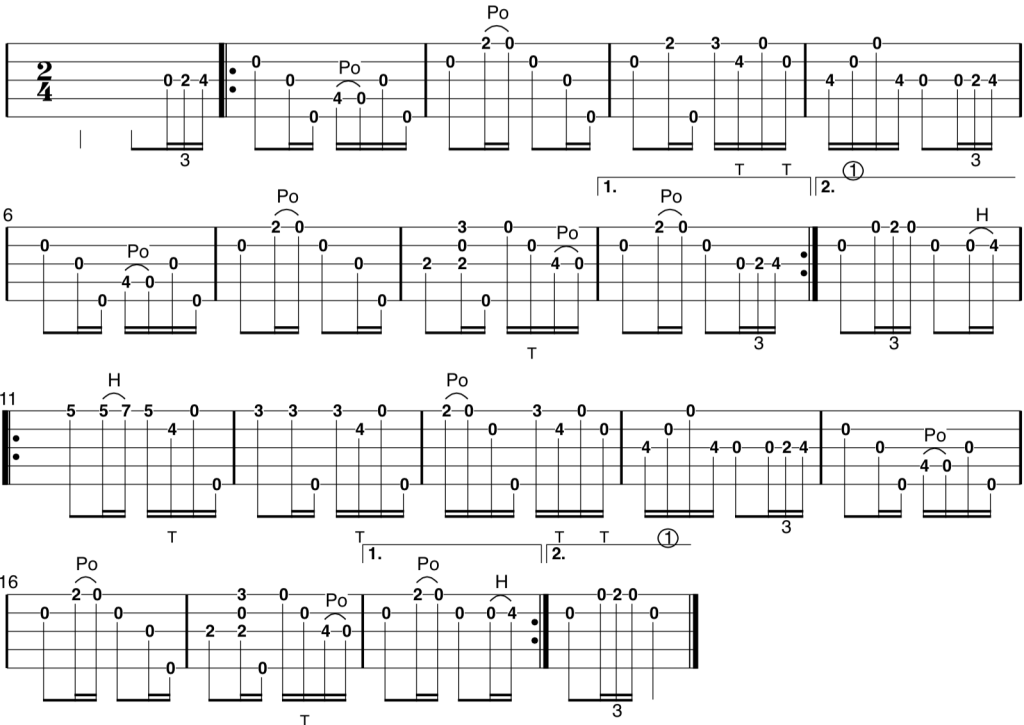In last Friday’s tune of the week, I took a tune – “When Johnny Comes Marching Home” – that’s traditionally played in 6:8 time and transformed it into 4:4 time signature, a rhythm better suited to the clawhammer stroke. There’s a long precedent for this sort of thing in old-time music, of taking old melodies and making them swing a bit more.
To me this is one of the defining features of southern old-time music – the infusion of rhythmic force into delicate, ornamental melodies. A transformation made to maximize the foot stompage quotient.
For kicks, in this week’s tune of the week I took the opposite tack by taking a tune typically played in 4:4 time and transforming it to 6:8 – for the intro, at least. I enjoy doing this sort of thing, taking a tune I know well and shifting it in some way: slowing it down, changing the time signature, etc. It’s like getting a free tune for half the effort!
And the tune in question is “Nancy”, one reported to have been originally composed by Northumbrian small piper Tom Clough in the 1930s. It’s a close cousin, or perhaps even a sibling, to the tunes “Fair Morning Hornpipe” and “Morpeth Rant”, and how that all came to pass I do not know. Sounds like an ideal research project for the aspiring musicology major, but beyond the scope of our discussion here.
For our purposes, we’ll just add it under the all encompassing “folk process” umbrella.
For years now, and for reasons my conscious mind likely isn’t privy to, this has been the tune that often falls out first when I grab my banjo. The tune I start playing before I’ve realized I’ve started playing. I think a lot of folks have a tune or tunes like this.
So consider that a warning. This tune can be habit forming.
Nancy
aDADE tuning, Brainjo level 4
